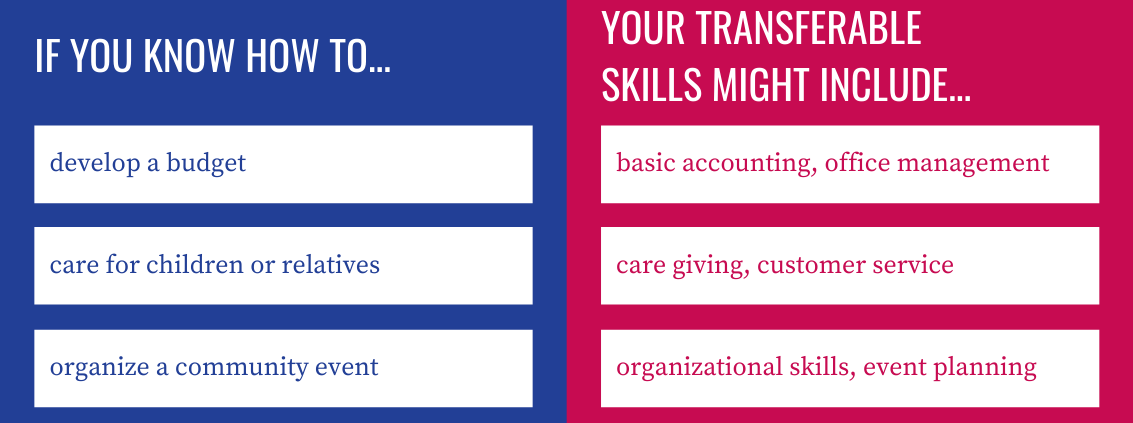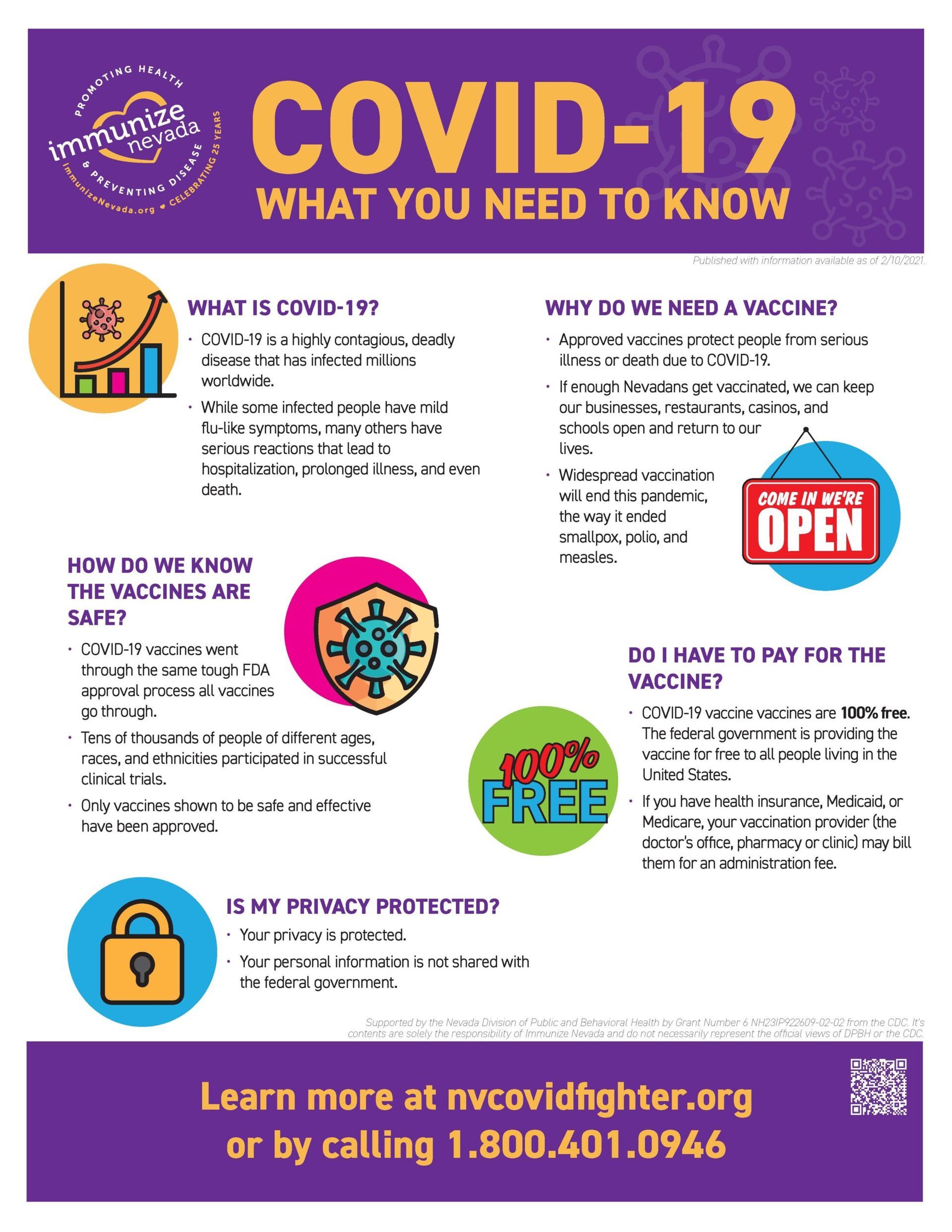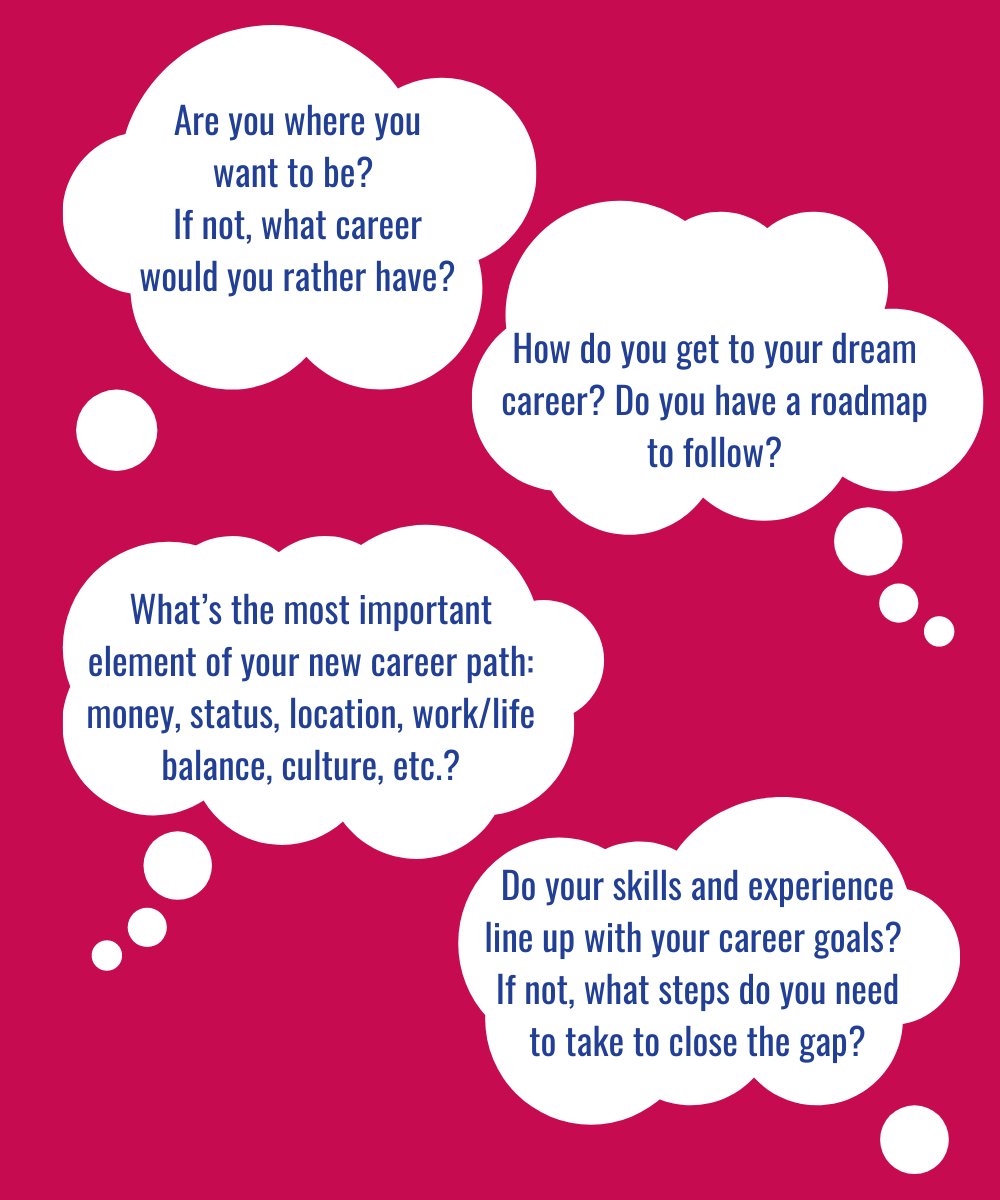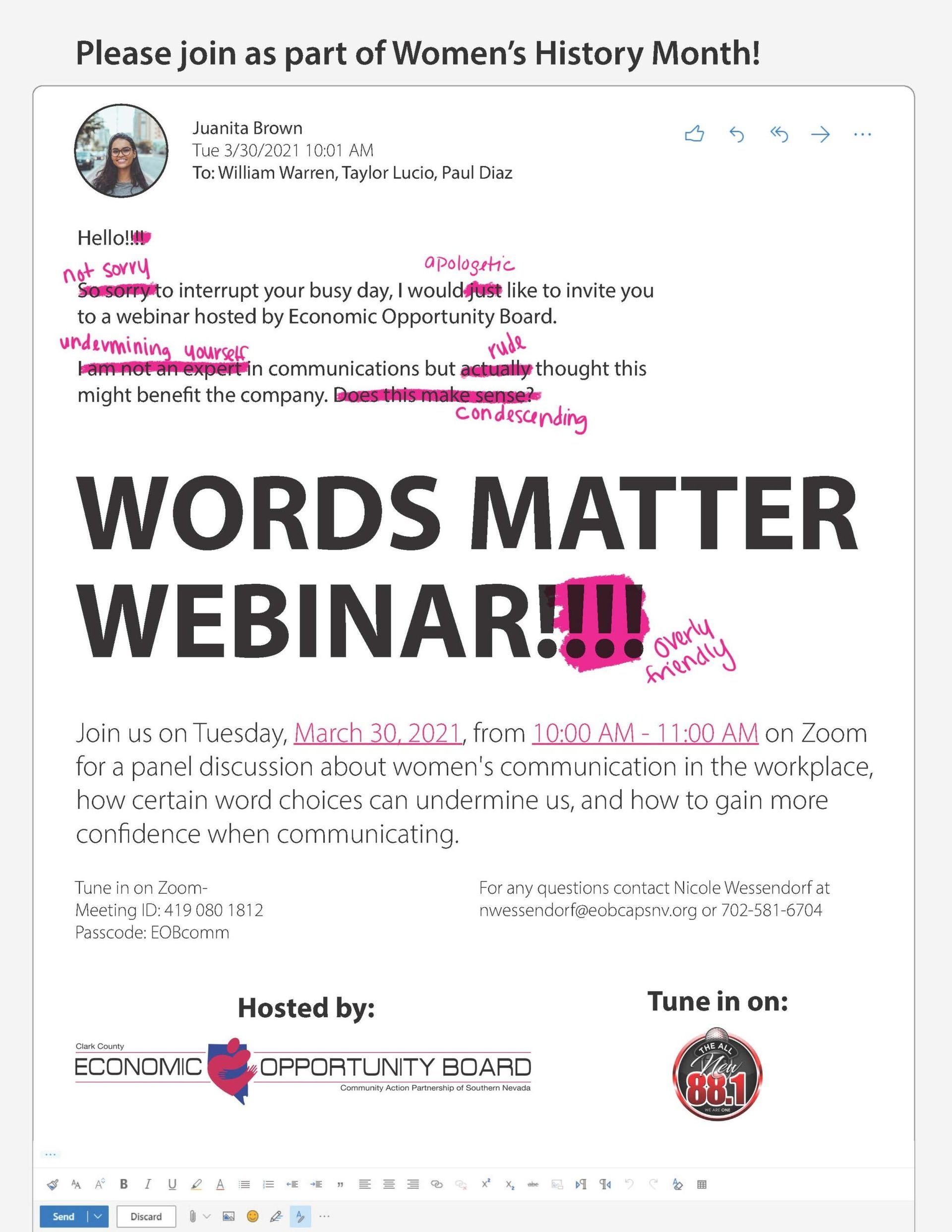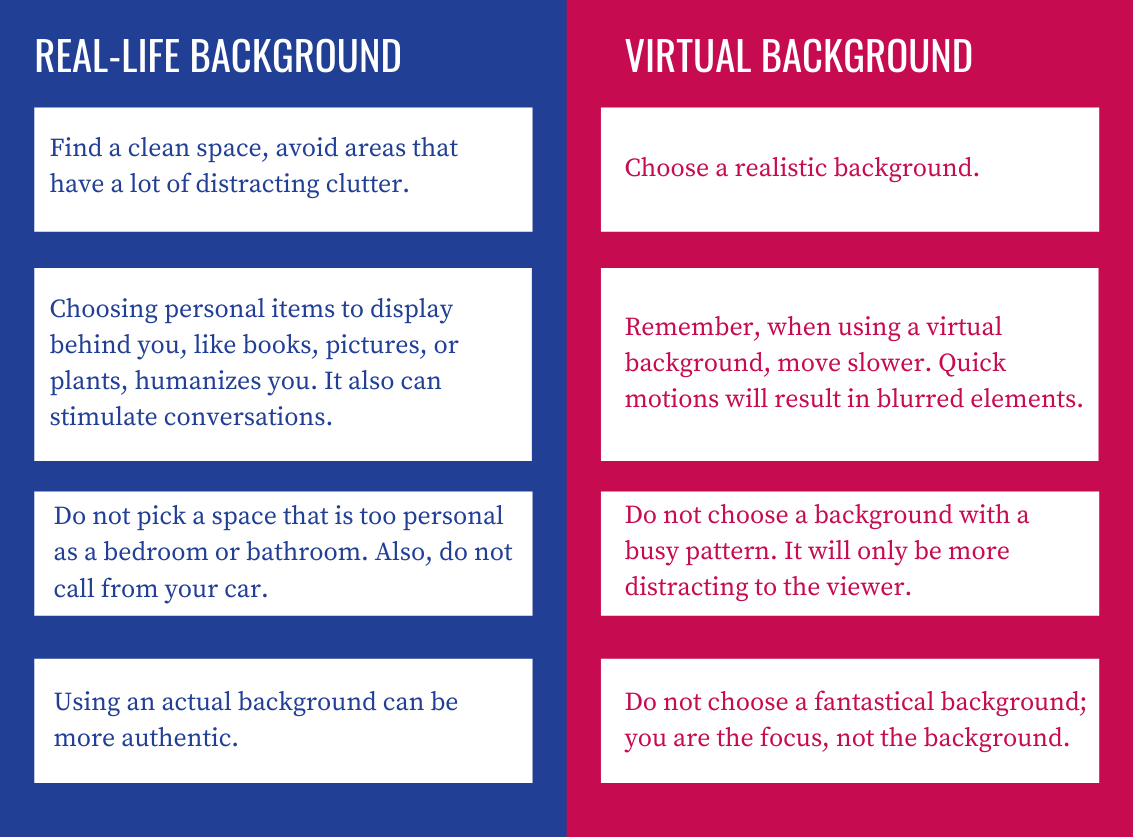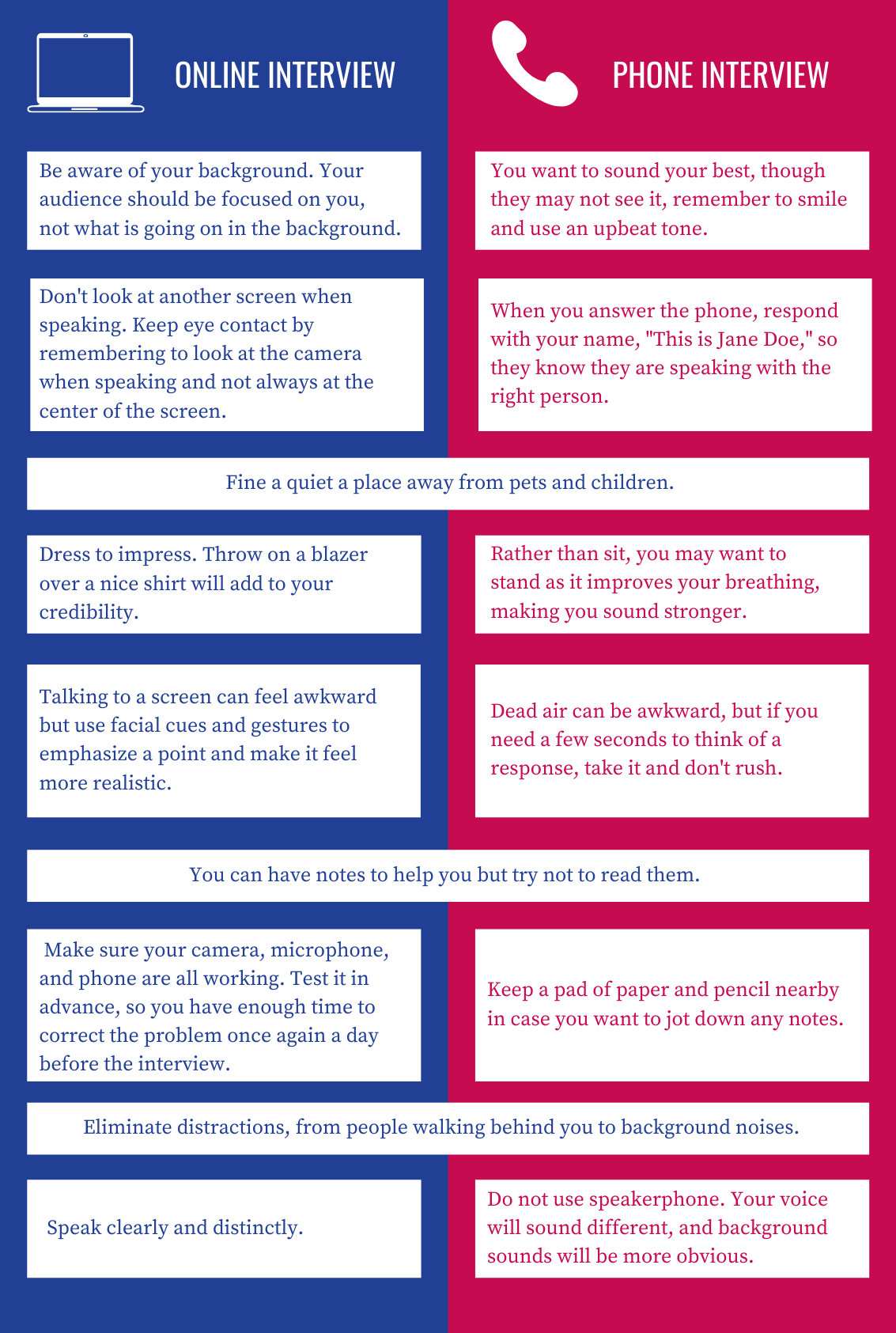21 Common Interview Questions
These are 21 of the most common interview questions asked in an interview. We’ve provided you with tips on how to prepare to answer them!
Tell me about yourself?
This open-ended invitation often kicks off an interview, so it is essential to set a good first impression. This question gives the interviewer a hint about how you’ll speak in meetings with co-workers, bosses, and clients.
Here’s the secret:
- Ensure that almost everything you share about yourself relates to how you can help this specific business.
- Don’t share your entire life story or too many personal details.
- Start with your education, walk them through your career, and focus on your relevant skills.
Outline your response like this:
- Present: Talk a bit about what your current role is, the scope of it, and perhaps a significant recent accomplishment.
- Past: Tell the interviewer how you got there and/or mention previous experience that’s relevant to the job and company you’re applying for.
- Future: Segue into what you’re looking to do next and why you’re interested in this gig (and a great fit for it, too).
Another tip, be succinct. Don’t waste this time regurgitating every single detail of your career or rambling for too long.
What are your greatest strengths that will help you do this job?
This question is an invitation for you to talk about why you’re the best and most qualified person for the job. Many candidates are either too modest in their response or don’t highlight those strengths that most closely match the job requirements.
It’s important to bring up traits that qualify you for the specific job and make you stand out from everyone else. Talking about your greatest strengths gives interviewers a look into your personality, what you value as an employee, and what you think gives you an advantage over other applicants.
Be prepared to answer by making a list of the criteria mentioned in the job posting and then:
- List your skills that match those the employer is seeking. This list can include education or training, soft skills, hard skills, or past work experiences.
- Narrow down your list of skills to three to five particularly strong skills.
- Next to each skill, note an example of how you have applied that strength in the past.
What are your weaknesses?
This question is all about self-awareness, so consider where you could use some improvement. The hiring manager is looking for indicators that show you’ve learned new tasks and handle new challenges.
Three possible ways to answer:
- Discuss a non-essential skill
- Mention skills that you’ve improved
- Turn a negative into a positive
Just be wary of cheesy responses like: “I work too hard,” interviewers cringe when they hear cliched answers. It’s important not to talk too much about your weaknesses or what you need to improve. You don’t want the interviewer to perceive you as a candidate who isn’t qualified. Don’t say that you’re perfect because you don’t want to come across as arrogant or dishonest. Keep it positive; employers don’t mind a few weaknesses if you’re continually improving.
Why should we hire you instead of other candidates?
With this question, you are forced to compare yourself to other candidates that you don’t know without being too boastful. This is your chance to wow them with your highlight reel. Before the interview, review the job description, think of skills that make you uniquely qualified for this job. Your answer should summarize the top three or four best reasons to hire you. If you can highlight a unique combination of skills or experience that makes you an even stronger candidate.
Avoid being generic with an answer like, “I’m smart, qualified, and I want this job.” So does every other candidate. Dig deep to find what makes you unique and special that this company needs you over anyone else.
Avoid talking too much in your response; state the qualifications you want to convey and move on.
What are your salary expectations?
When you’re looking for jobs, at some point, you’ll probably be asked to give an employer your salary requirements or salary history. It’s essential to be careful with describing this information — you don’t want to be screened out or offered a low salary. Use salary calculators to determine a fair salary for your position, region, and level of experience. Always give a range rather than a hard figure. This leaves room for negotiation, but you don’t want to aim so high that you put yourself out of the company’s range.
If there is a salary requirement on an application, use one of these responses:
- Put in a salary range based on your research.
- Write a phrase like “negotiable” to demonstrate your flexibility.
- Avoid putting down one specific salary. This will make it seem like you’re unwilling to budge.
Where do you see yourself in 5 years?
The interviewer wants to know that you’re in this for the right reasons and the long haul. Make it known that you have no reservations about this being the job for you, and emphasize what drew you to this career path. When you consider the future, you don’t have to have a specific role in mind but ensure your career goals follow a natural progression from this position to more senior roles in the industry.
What is your definition of success in this position?
My definition of success is learning my job duties well enough to make a positive impact on the company within the first six months to a year with the company.
Describe the working environment that best fits you? (Slow paced, fast pace, etc.)
Maybe you love working alone, but if the job you’re interviewing for is in a call center, that answer will do you no good. So take a step back and think about the job you’re applying for and the company’s culture (because every company has one, whether intentional or unintentional). If a flexible schedule is important to you, but the company doesn’t offer one, focus on something else. If you like constant direction and support and the company expects employees to self-manage, focus on something else. Find ways to highlight how the company’s environment will work well for you.
Describe a time when you went above and beyond your job description to complete a task at work.
Interviewers may ask this question to see if you are the type of employee who is willing to do more than what they require of you. Many employers want an employee who takes on new challenges that result in consistent improvement instead of doing only precisely what they are told. While all employees are expected to follow instructions, those who exceed performance expectations are often preferred by most companies.
Some thought starters on how to answer this question:
- Think about a project you completed with a clear goal.
- Why you chose to go above and beyond.
- Explain how you went above and beyond what is required.
- Explain the outcome.
Describe a time when you have had to deal with a conflict.
The idea is to find out about your ability to handle conflict and show the range of your interpersonal skills in the workplace.
Don’t pretend you’ve never had one; be honest about a difficult situation you’ve faced (but without going into the kind of detail you’d share venting to a friend).
“Most people who ask are only looking for evidence that you’re willing to face these kinds of issues head-on and make a sincere attempt at coming to a resolution,” former recruiter Richard Moy says. Stay calm and professional as you tell the story (and answer any follow-up questions), spend more time talking about the resolution than the conflict, and mention what you’d do differently next time to show “you’re open to learning from tough experiences.”
Aren’t you overqualified for this job?
While it may sound like the interviewer is trying to talk you out of applying for the job, they want to understand your motives and reasons for seeking this position.
Things to emphasize:
When answering the question, talk about your most relevant skills, traits, and experiences that qualify you for the position. Answer the question in a positive way and assure the interviewer that while you are perfectly qualified for the job, you are not necessarily over-qualified.
Things to avoid in this situation:
- Bragging about how you could easily get a higher-paying job if you wanted.
- Playing down your accomplishments in response to the question.
- Getting edgy when asked if you are over-qualified.
- Breeze over the question to get the interviewer to move on to the next question quickly.
Why did you leave your old job?
Keep things positive; you have nothing to gain by being negative about your current employer. Instead, frame things in a way that shows that you’re eager to take on new opportunities and that the role you’re interviewing for is a better fit for you. For example, “I’d really love to be part of product development from beginning to end, and I know I’d have that opportunity here.” And if you were let go from your most recent job? Keep it simple: “Unfortunately, I was let go,” is a totally acceptable answer.
What do you do in your free time at work?
Show how you are a proactive employee and seek ways to improve your job and self. Do you seek additional training that could help advance yourself and the company? Do you look for ways to improve a process to make things more efficient in the future? Frame this answer on how you are looking to better yourself and the company and not just sitting idle.
What would your supervisor and co-workers say about you?
Often it can be hard to brag about your accomplishments, so this is a time to use words from others.
The easiest way to answer this question is to paraphrase a recent positive performance review. An example would be, “Actually, in my most recent performance review in April, my direct supervisor described me as someone who takes initiative and doesn’t shy away from hard problems.”
Another way to do this is to start with the story and conclude it with how your boss or coworkers would describe you. An example would be, “One thing I’ve noticed is that I’m always the one people turn to for recommendations on how to handle a new event or program. I have a lot of institutional knowledge, which helps, but I think the reason people come to me is because I work through what a new program might look like very methodically. If you were to ask my colleagues, I’m confident they’d describe me as logical, organized, and meticulous.”
Are you willing to work overtime?
You will need to answer this question with your feelings in mind.
- If you are at the point in your career when you are eager to work as much as possible, by all means, go ahead and say yes!
- If you are genuinely unable to because of children, family, or other personal matters, it is important to express that upfront than lie and have to face this problem later.
It is possible to indicate that you are simultaneously a team player and not a workaholic.
According to Glassdoor , Zachary Painter of ResumeGenius.com suggests using a response like, “I think there is nothing wrong with working occasionally overtime hours if it’s justified; however, I also need the time outside of work to invest in myself so that I’m more productive and effective in the workplace.”
Tell me about your ability to work under pressure.
Interviewers ask questions like this because they want to know how pressure affects you and what you do to handle it. To give an excellent answer to this question, you should provide examples of how you’ve handled stress in the past and how it’s made you a more productive worker. Employers want people who work well in stressful situations and solve problems instead of avoiding them. They want to know that you won’t crumble emotionally under the weight of your responsibilities or pass off your duties onto everyone else.
What was your greatest accomplishment at your last job?
To answer this question, start by giving the interviewer some context; what was the situation that led to your accomplishment? Then, give your task and the actions you took to achieve whatever it was you achieved. Finally, talk about the positive result and how you’re personally proud of the accomplishment. More importantly, though, focus on the value that your accomplishment provided for your employer. Bonus points if you can quantify your results and tie your achievement in with job responsibilities for this position.
What do you know about our organization?
You’re almost guaranteed to hear this question during a job interview. Even if you hadn’t even heard of the company before applying for the job, you don’t want to be remembered as the person who gave the answer “jack diddly squat?” Failing to give a thorough and thoughtful answer to this question can hurt your chances of getting a job offer, but with some careful research before your interview, you can gather all the information you need to seamlessly and successfully answer this question and leave a positive impression on your interviewer.
What superpower would you like to have? Why?
Some interviews like to pepper in some “fun” questions. For this one almost any superpower is appropriate.
Points to consider when choosing one:
- Relate the power you want to how it would apply to you doing your job
- Relate the power to your personality
- Try to be unique
This is your chance to think outside the box and give a response no other applicant is likely to give.
Things to avoid:
- Don’t say a superpower without also giving a reason why you want it
- Avoid saying you can’t think of one
- Don’t act like the question is silly
- Don’t spend too much time thinking about it
What animal, bird or creature would you like to be? Why?
Seemingly random personality-test-type questions like these come up in interviews because hiring managers want to see how you can think on your feet. There’s no wrong answer here, but you’ll immediately gain bonus points if your answer helps you share your strengths or personality or connect with the hiring manager. Pro tip: Come up with a stalling tactic to buy yourself some thinking time, such as saying, “Now, that is a great question. I think I would have to say…”
Do you have any questions for me?
You probably already know that an interview isn’t just a chance for a hiring manager to grill you—it’s an opportunity to sniff out whether a job is a right fit from your perspective. What do you want to know about the position? The company? The department? The team? You’ll cover many of this in the actual interview, so have a few less-common questions ready to go. We especially like questions targeted to the interviewer (“What’s your favorite part about working here?”) or the company’s growth (“What can you tell me about your new products or plans for growth?”) If you’re interviewing for a remote role, there are some specific questions you might want to ask related to that.
While it’s smart to prepare a few basic questions in advance, your interviewer will be especially impressed by your ability to ask engaging questions based on the interview and grounded in your knowledge about the company. What would a typical day look like for this role? What professional development opportunities would be available for someone in this role? Given recent trends in the industry, how do you see the company changing in the next two years?”
The post 21 Common Interview Questions appeared first on Economic Opportunity Board.
RECENT POSTS



